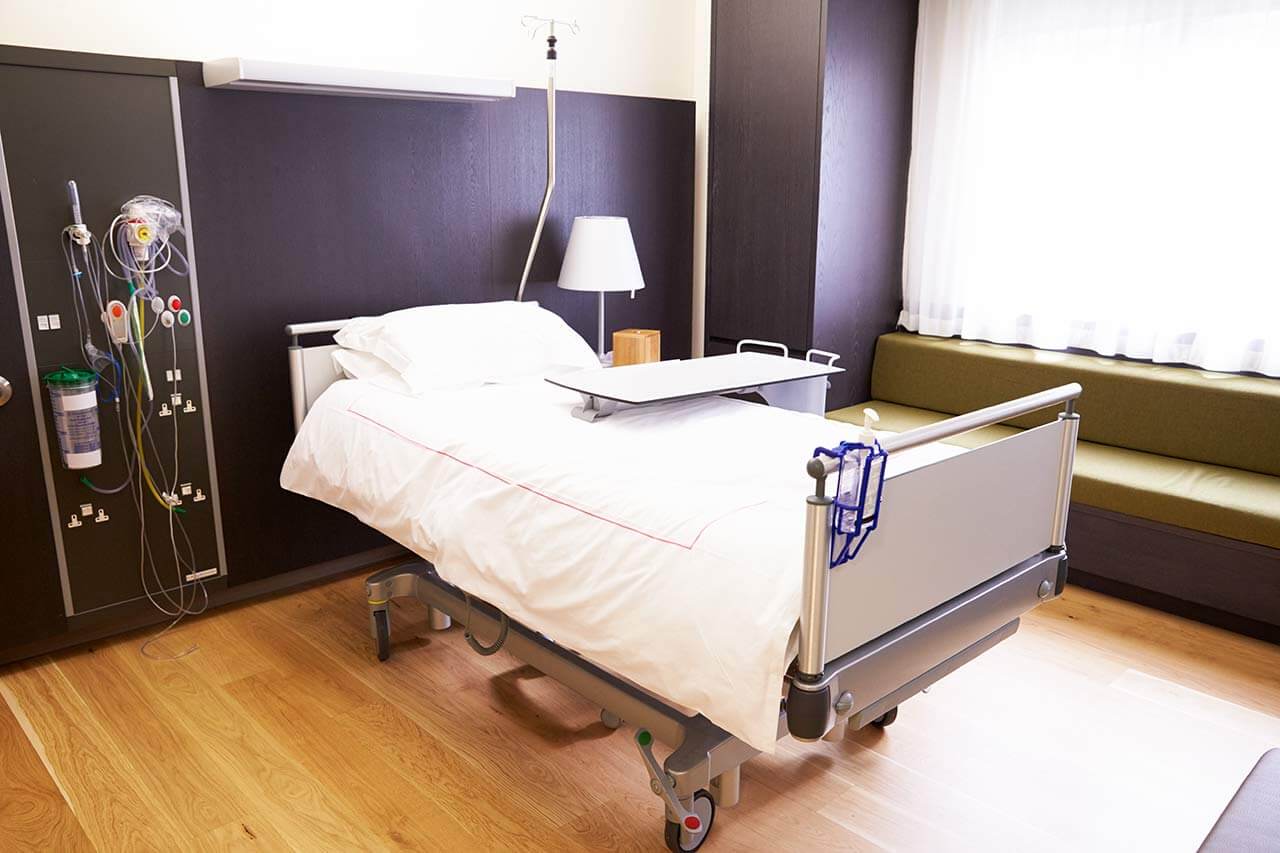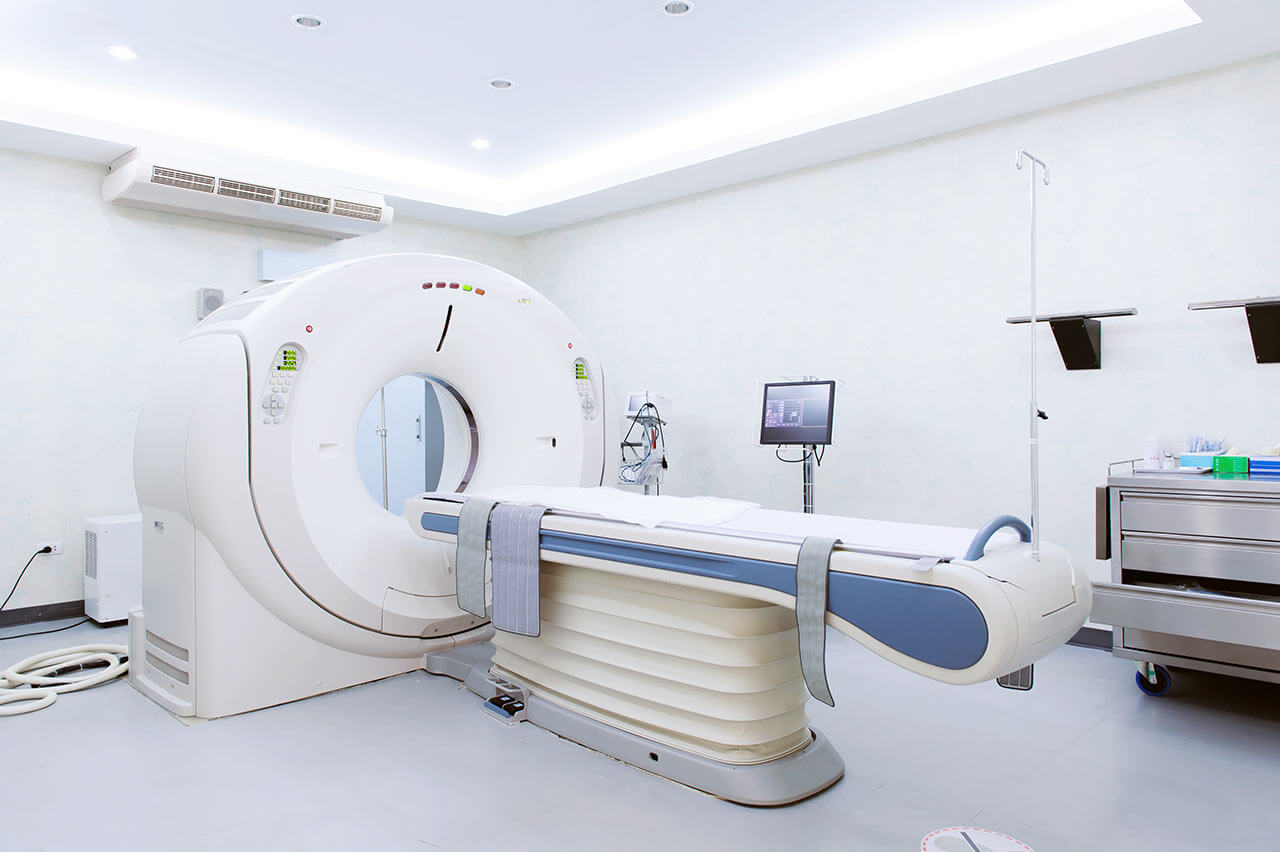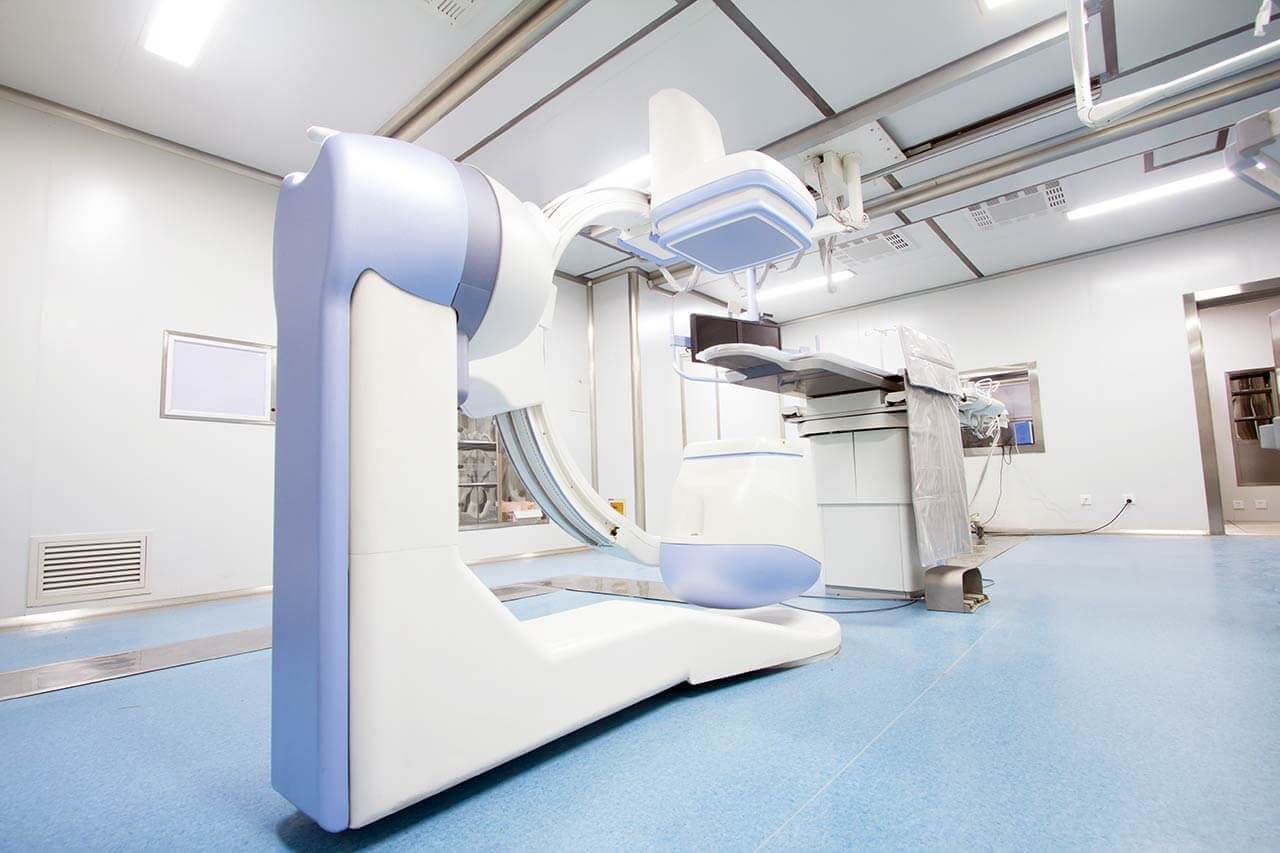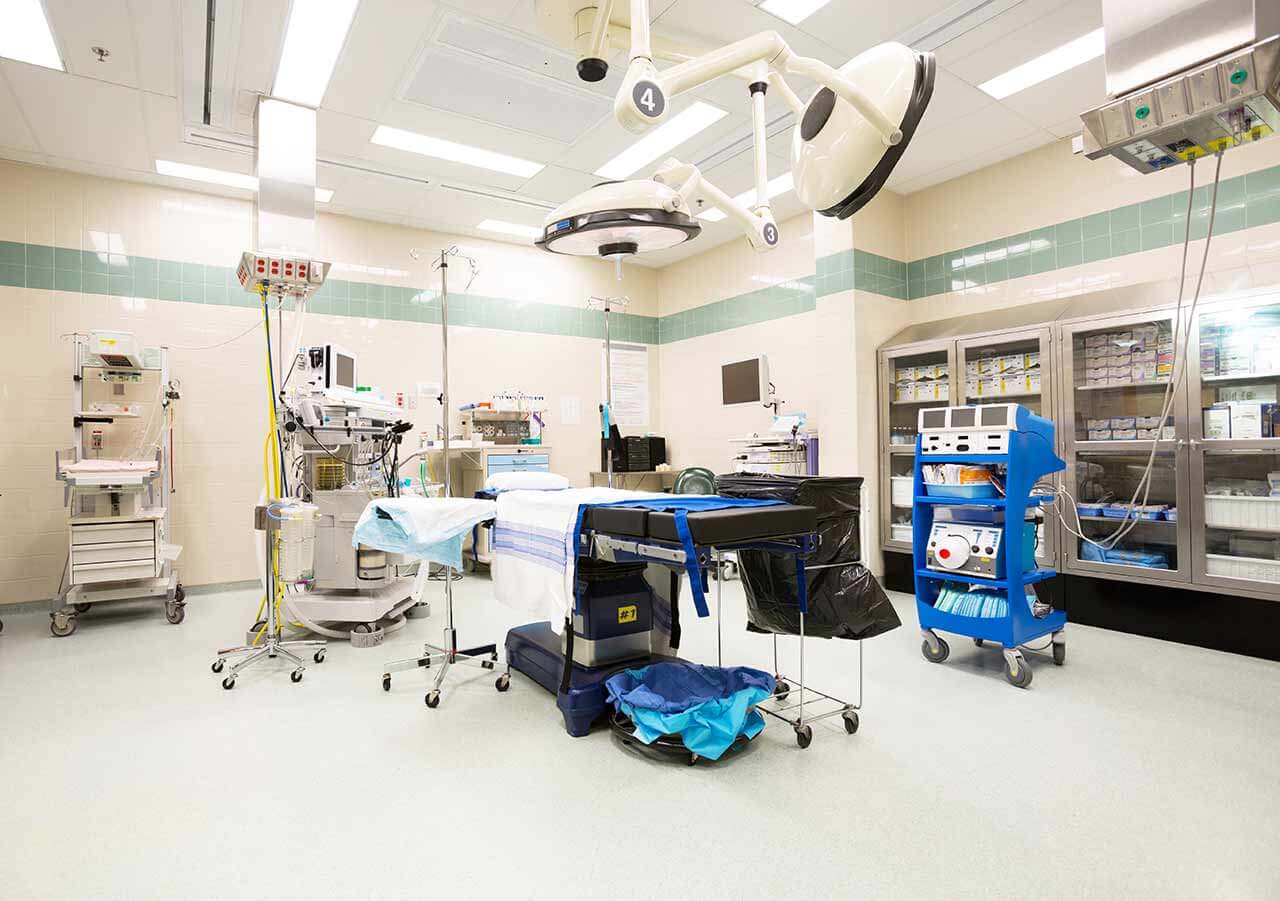
The program includes:
- Initial presentation in the clinic
- clinical history taking
- review of medical records
- physical examination
- laboratory tests:
- complete blood count
- general urine analysis
- biochemical analysis of blood
- TSH-basal, fT3, fT4
- tumor markers
- indicators of inflammation
- indicators blood coagulation
- ophthalmological examination
- planning of proton therapy
- surgical clip marker
- a full course of proton therapy
- full hospital accommodation
- nursing services
- explanation of future recommendations
How program is carried out
Proton therapy is the outpatient procedure, you do not need to stay in the hospital all the time.
During the first visit, the physician will conduct a clinical examination, go through the available medical records and CT scans. If necessary, the physician will prescribe you additional examinations in order to clarify the diagnosis and determine the localization of the tumor more accurately.
Preparation for proton therapy begins with manufacturing the special device – the individual immobilizer that will fix the position of your body during a proton therapy session. Immobility is essential for high irradiation accuracy.
After the control computed tomography, during which you will stay in the immobilizer, the healthcare professionals will develop an individual treatment scheme. The treatment scheme determines the number of proton therapy sessions, the radiation dose, the angle of the rays and the depth of their penetration. In accordance with these, technical devices are manufactured that determine the depth and form of irradiation. These are the collimator (determines the shape of the proton beam) and the bolus (determines the depth of the proton beam penetration).
After that, a trial irradiation session is carried out using the individual immobilizer, collimator and bolus. Doctors evaluate the radiation dose received by the tumor and its compliance with the treatment scheme.
Proton therapy. The procedures are carried out once a day, 5 days a week. Usually Saturday and Sunday are your free days when you do not need to visit the hospital.
Before each procedure, specialists check the position of your body using X-ray in two projections. If necessary, the irradiation is synchronized with the respiratory movements. After that, the tumor is exposed to the proton beams for 1-3 minutes. The total duration of the session with all the checking procedures is 15-30 minutes.
The procedure is painless and is performed in open-type devices (this is important for overweight people or people with claustrophobia). Proton therapy does not require bed rest or other restrictions of physical activity.
Monitoring the treatment effectiveness. After completing the treatment, you will be advised to come in for the long-term follow-up. You will visit your doctor regularly for a clinical examination and, if necessary, a CT scan.
Required documents
- Medical records
- MRI/CT scan (not older than 3 months)
Service
You may also book:
 BookingHealth Price from:
BookingHealth Price from:
About the department
The Proton Therapy Center BerlinProtonen at the Charite University Hospital Berlin offers modern treatment of benign and malignant eye tumors using proton therapy – one of the most precise radiation methods in modern medicine. The center began its work in 1998 and since then has firmly maintained a leading position among similar medical institutions in the global healthcare system. The center's specialists conduct proton therapy for the treatment of choroidal melanoma, iris melanoma, and ciliary body melanoma. They also offer a "second opinion" service, which allows patients with eye tumors receive expert consultation on the possibility of receiving proton therapy. The center's director is Prof. Dr. rer. nat. Andrea Denker.
The successful results of the center's clinical activities are known far beyond Germany, so many foreign patients regularly come here. The team of the Proton Therapy Center BerlinProtonen works closely with experts from the Helmholtz Berlin Materials and Energy Center, and their joint work brings excellent results. Physicians from the Department of Radiation Therapy at Charite Hospital and the Charite Comprehensive Cancer Treatment Center are also involved in the therapeutic process. The proton radiation regimen for each patient is individually developed by an experienced team of medical physicists, radiation therapists, and ophthalmologists. Today, innovative proton therapy allows controlling tumor growth and preserving the functionality of the affected eye in 96% of patients.
Before starting proton therapy, doctors perform comprehensive diagnostics, which provides a complete picture of the eye's condition and allows for the most accurate treatment planning. Since choroidal melanomas can form distant metastases, primarily in the liver, specialists conduct additional studies to detect them.
For targeted proton radiation, doctors need to determine the exact location of the tumor. For this purpose, four (in rare cases more) markers made of tantalum are placed on the surface of the orbit. This procedure is called clipping and lasts about 45 minutes; it is performed under general anesthesia. The markers, about 2.5 mm in diameter, remain in the eye after the completion of proton therapy; they do not cause discomfort and are clearly visible on X-ray or MRI.
During the computer planning of the procedure, doctors create a model of the patient's eye. For this, they use high-resolution CT data, which is performed after the clipping procedure. Additional ultrasound examinations may also be performed. In rare cases (for example, with large tumors), high-resolution MRI may be conducted.
An important advantage of proton radiation is the peculiarity of energy release in tissue (Bragg peak), which allows for the most accurate radiation of the tumor while preserving neighboring organs and tissues. The center is equipped with a device for emitting a beam of protons with an energy of 68 MeV, which can penetrate the body to a depth of about 30 mm. This energy is ideal for treating intraocular tumors. First of all, malignant melanomas of the uvea are irradiated: choroidal melanomas, ciliary body melanomas, and iris melanomas. In addition, with the help of proton therapy, other tumors such as conjunctival melanoma, hemangioma, and retinoblastoma can be treated.
Thanks to interdisciplinary cooperation, patients at the center also have access to alternative treatment methods for intraocular tumors. These include enucleation of the eyeball, brachytherapy (contact radiation), stereotactic radiation therapy, and treatment using the CyberKnife system. Brachytherapy is mainly used for small and medium-sized choroidal melanomas. If contact radiation is not possible, a decision is made to start proton therapy. Stereotactic radiation and CyberKnife treatment are recommended to patients in rare cases. Eye enucleation is considered as a last-line treatment when other therapeutic methods have been exhausted.
Proton therapy is a highly effective method of treating such eye tumors as:
- Choroidal melanoma
- Ciliary body melanoma
- Iris melanoma
- Conjunctival melanoma
- Eye hemangioma
- Retinoblastoma
- Other eye tumors
Photo of the doctor: (c) Charité – Universitätsmedizin Berlin
About hospital
According to the reputable Focus magazine, the Charite University Hospital Berlin ranks 1st among the best healthcare facilities in Germany!
The hospital is one of the largest and leading university medical complexes in Europe, and also consistently holds leading positions in the international medical arena. The Charite operates on the basis of the Faculty of Medicine of the Free University of Berlin and the Humboldt University of Berlin. Patients are offered modern diagnostics and treatment with the very latest methods, many of which were developed by professors and scientists of the medical complex. More than half of all German Nobel Prize winners in medicine and physiology, such as Emil von Behring, Robert Koch, and Paul Ehrlich, studied and worked at the Charite University Hospital Berlin. The medical complex includes more than 100 specialized departments and institutes, which helps to ensure that patients receive care in all existing medical specialties. The hospital has exceptional experience in treating complex clinical cases.
Each year, the hospital treats more than 137,800 inpatients and more than 787,700 outpatients. The hospital has a bed capacity of 3,293 beds. A huge medical team consisting of 5,670 scientists and doctors and more than 6,000 nurses work for the benefit of the patients. The main task of all specialists of the medical facility is to restore the patient's health or save his life in critical cases. The hospital has a friendly atmosphere where every patient feels care, respect and empathy.
The Charite University Hospital Berlin is generously funded by the German government, which is why it offers patients the latest generation of excellent equipment and comfortable infrastructure. The Charite medical complex is equipped with da Vinci robotic surgery systems, laser technologies, equipment for endovascular catheter-based interventions, neuronavigation devices, intraoperative monitoring systems, equipment for proton therapy available only in the most advanced medical centers in the world, and many other technologies. All these resources, combined with the experience and professional skills of the hospital's doctors, are the key to providing the most effective and safe treatment in accordance with the highest international medical standards.
The hospital is recognized with a huge number of quality certificates, including DIN EN ISO 9001:2015, certificates from the German Cancer Society (DKG), the German Society for General and Visceral Surgery (DGAV), the German Society for Thoracic Surgery (DGT), the German Hernia Society (DHG), and the ERAS Society.
The Charite University Hospital Berlin is a benchmark in the European healthcare system. Patients therefore receive impeccable medical service, quality care, and personalized service that puts the patient and their individual needs first.
Photo: (с) depositphotos
Accommodation in hospital
Patients rooms
The patients of the Charite University Hospital Berlin live in comfortable rooms made of modern design. Each room is equipped with an ensuite bathroom with a toilet and a shower. The standard room furnishing includes an automatically adjustable bed, a bedside table, a wardrobe for storing clothes, a table and chairs for receiving visitors, and a TV. If desired, Wi-Fi access can be provided. The hospital also offers enhanced-comfort rooms.
Meals and Menus
The patient and his accompanying person have a daily choice of three menus. If for any reason, you do not like the food, you will be offered an individual menu. Please inform the medical staff about your dietary preferences before the treatment.
Further details
Standard rooms include:
Religion
Religious services are available upon request.
Accompanying person
During the inpatient program, an accompanying person may stay with you in a patient room or at the hotel of your choice.
Hotel
During the outpatient program, you can live at a hotel of your choice. Managers will help you to choose the most suitable options.
The hospital offers a full range of laboratory tests (general, hormonal, tests for infections, antibodies, tumor markers, etc.), genetic tests, various modifications of ultrasound scans, CT scans, MRI and PET / CT, angiography, myelography, biopsy and other examinations. Treatment with medications, endoscopic and robotic operations, stereotaxic interventions is carried out here, modern types of radiation therapy are also used. The hospital offers patients all the necessary therapeutic techniques.
- Proton therapy
- CyberKnife treatment
- Hyperthermic intraperitoneal chemotherapy (HIPEC)
- PSMA therapy with Lutetium-177
- Joint replacement in adults and children
These are oncological diseases, benign neoplasms of the brain and spinal cord, heart valve defects, diabetes mellitus and its complications, joint diseases and other pathologies.
- Neurosurgery
- Oncology
- Plastic and reconstructive surgery
- Interventional radiology
- Proton therapy (Proton Therapy Center BerlinProtonen)
The medical team includes more than 4,225 highly qualified scientists and doctors.






